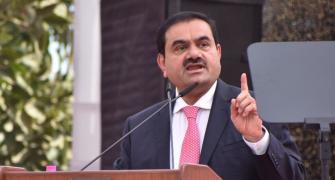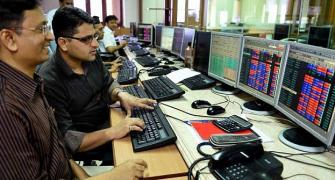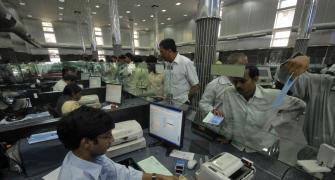 The government's proposal to roll out a plan by the year-end to raise solar power generation capacity to 20,000 mega watts (MW) by 2020 is laudable but could be a case of vaulting ambition, and therefore not very realistic.
The government's proposal to roll out a plan by the year-end to raise solar power generation capacity to 20,000 mega watts (MW) by 2020 is laudable but could be a case of vaulting ambition, and therefore not very realistic. The Prime Minister's council on climate change has approved the setting up of a national solar mission for this purpose. If this goal is to be met, it would mean generating 10 per cent of the country's total power by tapping sunlight.
Such a massive production capacity would be sufficient to meet the electricity needs of three of the country's biggest cities. There is no doubt that the country needs more power, and producing it from clean sources is the way to go when environmental pollution and global warming have become major issues.
But the record of tapping solar energy does not inspire much confidence. No more than 500 MW of solar power production capacity has yet been installed. A sizeable part of even this is said to be lying unused.
Considering the high initial cost of harnessing solar energy, the target will require investment in excess of Rs 90,000 crore (Rs 900 billion), most of it in the private sector. This may be difficult to arrange.
Already, the government's hopes of attracting a broadly comparable scale of investment in the renewable energy sector by 2012 have dimmed because of the global financial crisis. Of an investment of about Rs 15,000 crore (Rs 150 billion) that has been organised since 2007, nearly half is for wind energy where the initial investment is low and recoverable in a short period.
One advantage of setting an ambitious target is that it will strengthen India's negotiating position at the ongoing parleys to hammer out a successor to the Kyoto protocol. The country will also be able to seek solar technology transfer and financial assistance from the rich nations without undue riders.
That said, the policy of laying greater emphasis on solar energy vis-à-vis other sources of green energy remains a contentious one. Though solar energy is available in abundance in India - the amount of energy bestowed by the sun on the country in a few minutes is deemed to be more than what it can consume in a year - but no more than a miniscule fraction of it can be converted into electric power.
There is a daunting cost barrier, because the technology for converting sunlight into electricity is yet not fully evolved. Besides, there is no consensus on whether the country should prefer the thermal route of converting solar energy into electricity (India has a domestic manufacturing base and some scope for cost reduction in this field) or the photovoltaic route (which the government prefers, though it has limited scope for indigenous technology refinement).
In view of all this, it may be wiser to hedge bets by placing eggs in different baskets, and plan on a judicious mix of clean energy sources, including wind energy, hydel energy and energy from biomass-recycling.
Some of the alternatives to solar energy may be more practical and less costly, even if their overall power production potential is lower.








